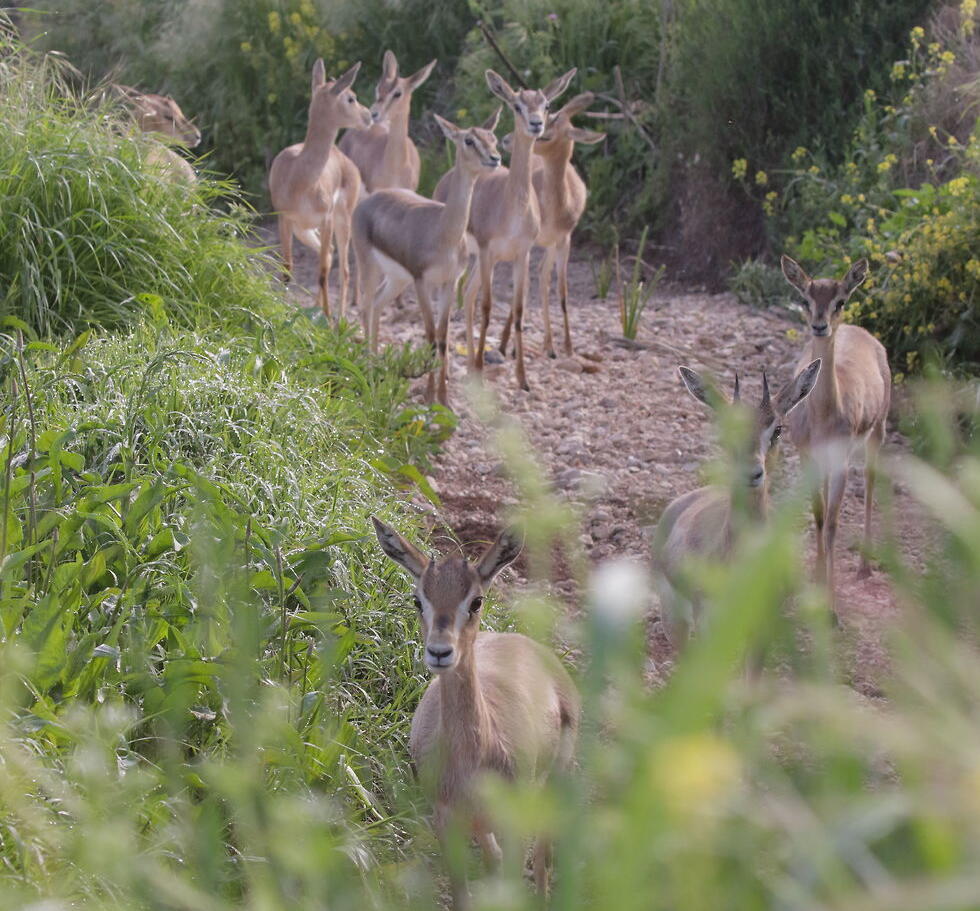Getting your Trinity Audio player ready...
The staff at Jerusalem's Gazelle Valley got a welcome surprise Tuesday when they managed to documented a dozens of gazelles galloping about the park in an apparent effort to warm themselves up.
Mountain Gazelles, found all throughout Israel, are able to survive the winters in Israel by adjusting their dietary and behavioral habits.
Gazelles galloping to warm themselves up
(Efrat Yagur, Society for the Protection of Nature )
Amanda Lind, the park director under the Society for the Protection of Nature in Israel, said that during the winter, the gazelles' diets change from dry weeds to almond pieces, which have a high nutritional value. The gazelles also eat olives, rich in fat, which provide them with a high source of energy.
"In the evening hours, the gazelles go on runs that warm them up before the temperatures drop," Lind added.
Efrat Yagur, the manager of the park's 80-strong gazelle herd, managed to capture a video of this phenomenon in the beginning of the week. A total of 54 gazelles - more than half of the herd - participated in this "warm-up lap."
1 View gallery


Gazelles in the Gazelle Valley park
(Photo: Amir Balaban, The Society for the Protection of Nature in Israel)
Mountain Gazelle is considered a vulnerable species, meaning it has become almost extinct, with only 5,000 still living in nature. The main threats to their survival are poaching, destruction of habitat and separation from crucial resources by highways, and urban development.
The Society for the Protection of Nature in Israel are among several bodies that are fighting to save every piece of vacant territory and ecological corridor that is still left for them to live in.
Gazelle Valley is the biggest urban nature site in Israel, and its main goal is to maintain a breeding population of gazelles in the park, in order to reintroduce members of this endangered species to the wild. Alongside the gazelles, the park is home to dozens of species of birds, reptiles, insects, and plants - compiling a functioning urban ecosystem.




